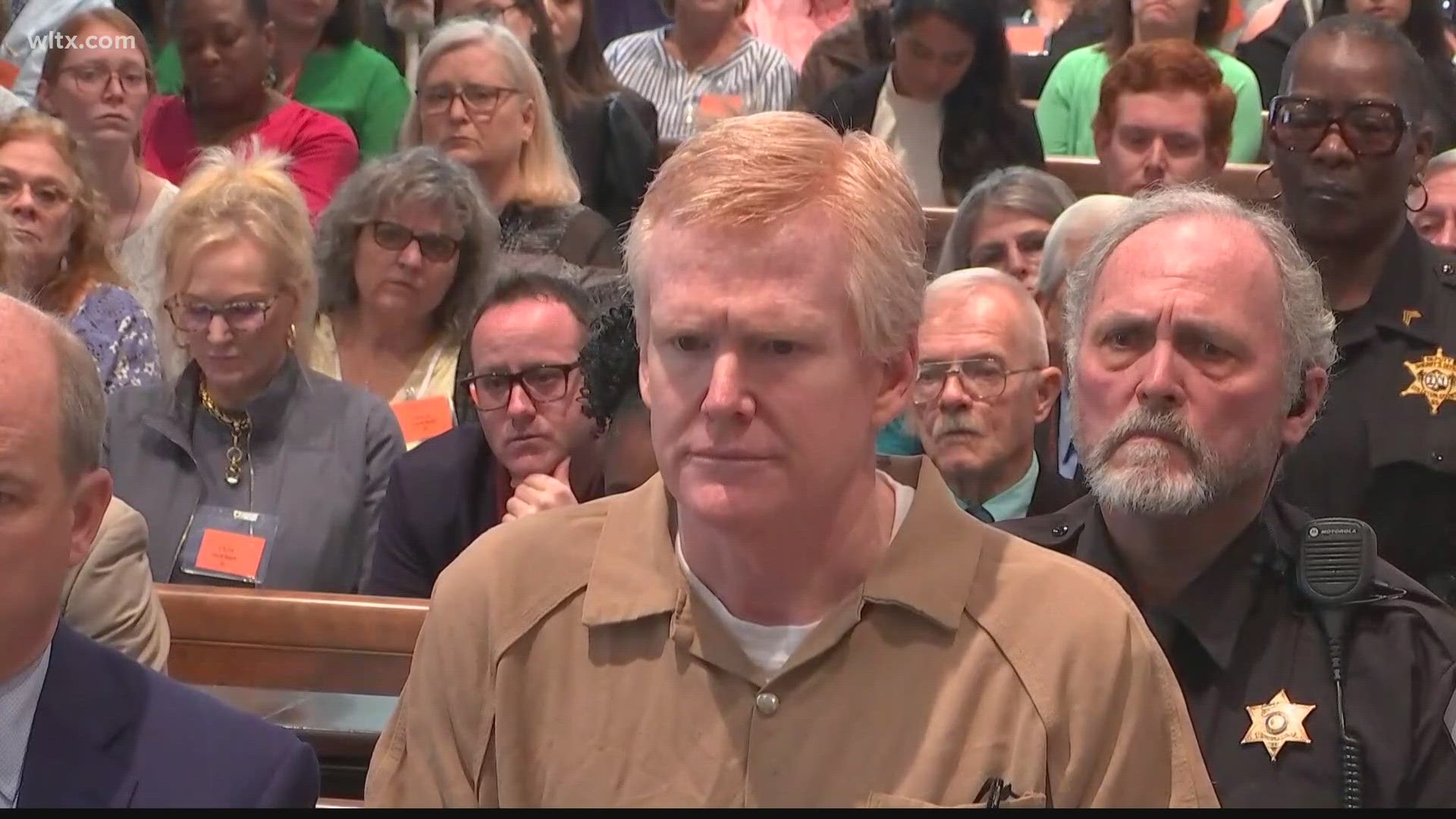CHARLESTON, S.C. — Convicted double murderer Alex Murdaugh is once again facing new charges, this time in federal court. The US Attorney's Office in South Carolina announced a federal grand jury has returned a 22-count indictment against the former Lowcountry lawyer for conspiracy to commit wire fraud and bank fraud, bank fraud, wire fraud, and money laundering.
Murdaugh, who has begun serving his sentence of life without parole after being found guilty of the murder of his wife Maggie and youngest son Paul, allegedly engaged in three different schemes to obtain money and property from his personal injury clients when he was a practicing personal injury lawyer in the town of Hampton, SC, according to the indictment.
According to court records, the first scheme allegedly took place between September 2005 until at least September 2021 when Murdaugh devised a scheme to defraud and obtain money by means of false pretenses. Murdaugh allegedly routed and redirected clients' settlement funds to personally enrich himself by:
- Drafting, or directing law firm employees to draft, disbursement sheets to send settlement funds to Murdaugh’s accounts without proper disclosure or client or law firm approval;
- Claiming funds held in the law firm’s trust account as attorney’s fees and directing the disbursement of those funds for his benefit;
- Claiming and collecting attorney’s fees on fake or nonexistent annuities;
- Creating fraudulent “expenses” that were never incurred on client matters and directing the disbursement of settlement funds to pay the cited costs, including claimed medical expenses, construction expenses, and airline expenses;
- Directing other attorneys with whom he was associated on client matters to disburse attorney’s fees directly to him, rather than appropriately routing the fees through the law firm; and
- Intercepting insurance proceeds intended for beneficiaries and depositing them directly into his personal account.
The second scheme alleges Murdaugh conspired with his banker Russell Lafitte from July 2011 until at least October 2021 to commit wire fraud and bank fraud. Murdaugh allegedly asked Lafitte, who was employed during this time at his family-owned Palmetto State Bank, to serve as personal representative or conservator for numerous personal injury clients. During that span of time, Lafitte collected over $350,000 in fees for Murdaugh's clients. The lawyer then directed his employees to make settlement checks payable to Palmetto State Bank.
Those checks were delivered to Lafitte, whom Murdaugh directed to use the money for Murdaugh's personal benefit -- paying off his personal loans and expenses.
Lafitte was convicted on six federal charges in November 2022 -- including conspiracy to commit wire and bank fraud, bank fraud, and wire fraud for his role in this scheme -- and is awaiting sentencing.
The third scheme in the indictment alleges Murdaugh created a bank account in the name of Forge in September 2015, presenting is as a legitimate corporation for structuring insurance settlements. Records show Murdaugh was the owner and only authorized signer on this Forge account. His plan was to funnel stolen settlement money through this "fake Forge" account rather than legally deposit the money into Forge Consulting, the company his law firm used to structure settlements for clients.
Murdaugh is facing 14 counts of money laundering for using the "fake Forge" account to conceal proceeds from his fraud between May 2017 through at least July 2021.
Also, from in or around February 2018 until at least October 2020, Murdaugh conspired with Corey Fleming, a personal injury attorney in Beaufort, to defraud the estate of Gloria Satterfield, Murdaugh’s former housekeeper, and Murdaugh’s homeowner’s insurance carriers. Satterfield died in February 2018 after a fall at Moselle, the Murdaugh family home. Murdaugh recommended that her estate hire the Beaufort attorney to represent them and file a claim against Murdaugh to collect from his homeowner’s insurance policies.
Murdaugh’s insurance companies settled the estate’s claim for $505,000 and $3,800,000 which then was siphoned off, disguised as "prosecution expenses." The indictment further alleges that Murdaugh directed the Beaufort attorney to draft checks totaling $3,483,431.95 made payable to “Forge,” Murdaugh's "fake Forge" account. Murdaugh then used those funds for his personal enrichment while the Satterfield estate did not receive any of the settlement funds.
Murdaugh faces the following charges:
- One count of conspiracy to commit wire fraud and bank fraud, punishable by up to 30 years in prison and a fine of up to $1,000,000;
- One count of bank fraud, punishable by up to 30 years in prison and a fine of up to $1,000,000;
- Two counts of wire fraud, punishable by up to 30 years in prison and a fine of up to $1,000,000;
- Three counts of wire fraud, punishable by up to 20 years in prison and a fine of up to $250,000;
- One count of conspiracy to commit wire fraud, punishable by up to 20 years in prison and a fine of up to $1,000,000; and
- Fourteen counts of money laundering, punishable by up to 20 years in prison and a fine of up to $500,000.
Murdaugh also faces 101 counts of embezzlement, computer crime, money laundering, conspiracy and tax evasion.

